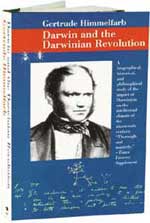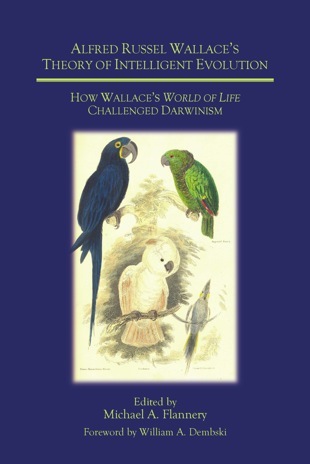Himmelfarb on Darwin: An Enduring Perspective After 50 Years, Part 2

In part 1 it was demonstrated that Gertrude Himmelfarb’s Darwin and the Darwinian Revolution is the book Darwinists love to hate. In order to understand why a rather detailed examination is required. Of course, this is a big biography and an exhaustive account cannot be given here, but a summary investigation will make the source of the Darwinist’s discomfort obvious.
Darwin is divided into six “books”: 1) “Pre-history of the Hero;” 2) “Emergence of the Hero;” 3) “Emergence of the Theory;” 4) “Reception of the Origin;” 5) “Analysis of the Theory;” and 6) “Darwinism.” The first four books are an interesting read and provide a valuable backdrop to the treatment that follows, but Himmelfarb is weakest on Darwin’s early years. She completely passes over Darwin’s Edinburgh period where he joined the Plinian Society in November of 1826 and attended all but one of the ensuing 19 meetings until April of 1827. According to Adrian Desmond and James Moore’s Darwin: The Life of a Tormented Evolutionist, this was young Charles’ introduction to “seditious science.” While this is crucial in understanding the development of Darwin’s theory, it will not be gleaned from this book.
Also, Himmelfarb believes that Darwin was uninterested in and ill-equipped to appreciate the philosophical implications of his theory. Probably a better suggestion is that Darwin wasn’t so much disinterested in philosophy as he was just a bad philosopher, or at least a very superficial one. She as much as admits Darwin’s anemic reading in the field: “What little reading he did in philosophy was parochial in the extreme. . . . It is difficult to take seriously a discussion that had, as its most frequently cited moralist and philosopher, the historian William Lecky” (p. 375).1 When Darwin appended a list of moral philosophers he had relied upon in preparing his Descent, philosophers he “assured” his readers that they would be familiar with, Himmelfarb notes that 26 were British “and that [they] are today, quite as assuredly, entirely unknown.”
Nevertheless, what Himmelfarb misses in the early years she more than makes up for in the last two books devoted to an analysis of the theory and the ideological ism that it would turn into. Here in these two sections more than anywhere else reside the sources of anger, revilement, and consternation for the Darwinists.



